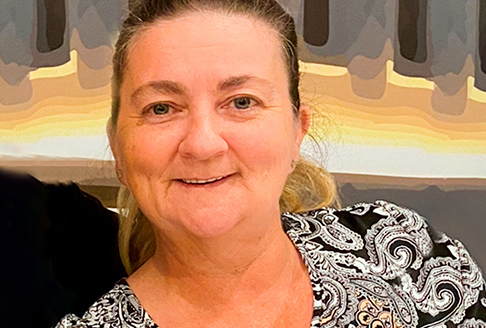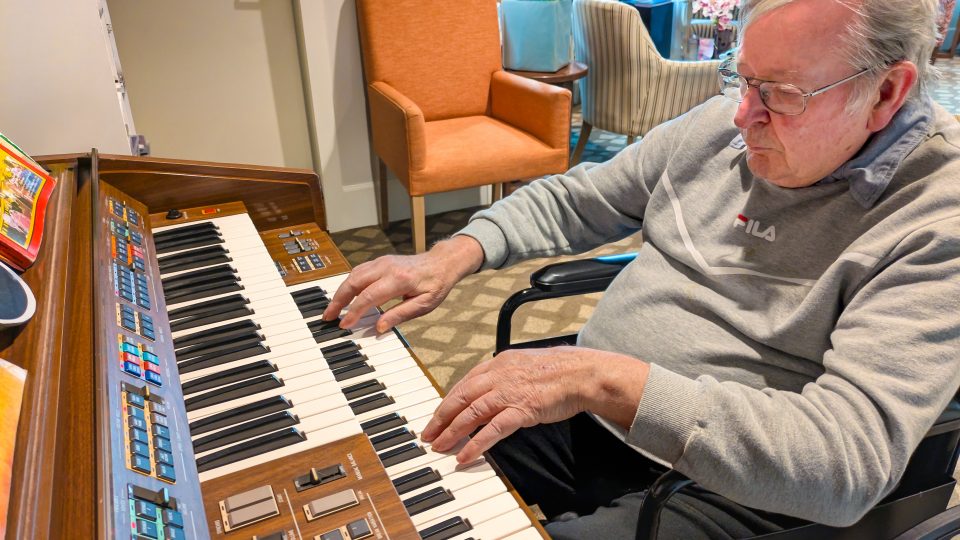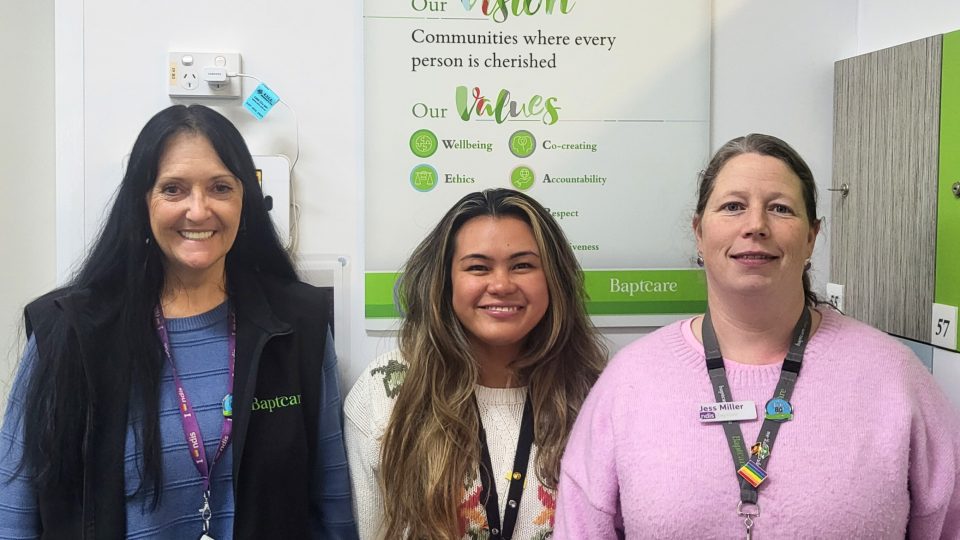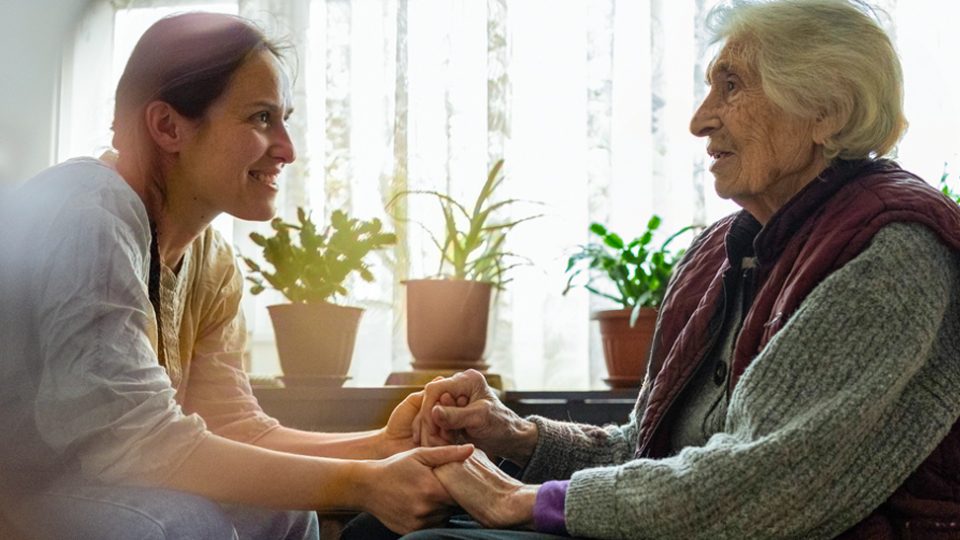Looking back on National Palliative Care Week
- 10 Jun 2022

Perspectives on National Palliative Care Week 2022 | Faces of Baptcare | Tammylea Collyer, Care Advisor – Home Care
Meet Tammylea Collyer, Care Advisor and an integral part of our Home Care team.
Tammylea is a strong advocate for people being able to access high quality palliative care in the setting of their choice, including their own homes.
We asked her to look back on National Palliative Care Week and what this vital care means to so many.
- National Palliative Care Week (22 May – 28 May) is Australia’s largest annual awareness-raising initiative to increase understanding of the benefits of palliative care.
What does the week mean to you?
I think it raises awareness about everybody’s right to access high quality care, compassion and comfort when they need it.
It’s amazing that we can offer tailored palliative care in the home, supporting a person’s emotional and psychological needs, along with managing physical symptoms and pain.
We don’t forget our clients’ spiritual and cultural needs, either. An important part of palliative care involves supporting the entire family to come together and have a range of sensitive conversations about what the right kind of care looks like for them.
- How did you come to work for Baptcare?
I started with Baptcare as a Personal Alert Victoria Responder. I was working in another role with Aruma at the time, as a Youth Service Case Manager. When that finished up, Baptcare asked if I was interested to come on board as a Personal Care Worker (PCW).
After working one-on-one with clients as a PCW and understanding the importance of individualised care, I decided to put that knowledge to work as a Care Advisor. It’s a role focused on partnering with our clients to build tailored Care Plans meeting their individual goals. Everyone is different so it’s important I translate that into each Care Plan.
I’ve been with Baptcare for about two years now.
- What have your learned about the value of palliative care?
As a former PCW, I’ve worked side-by-side with palliative care teams. Together, we provide the full spectrum of care, that is, personal care, home care and respite care tailored to our clients’ emotional, spiritual, cultural and social requirements.
I’ve worked directly with our clients at the time of their passing. I understand that it’s not a job for everyone. But personally, I feel that being there and talking to clients – even when they are not responsive – and being able to brush their hair and tell them that their loved ones are OK, is crucial to a respectful and person-centred care approach.
Being there for our clients and their families – knowing how much this is appreciated at such a difficult time – just reinforces why palliative care teams love the job that we do.
I was glad to be part of these teams, ensuring that our clients and their families received the highest level of care and compassion through those times.
- Growing up, did you always want to work in an industry involving one-on-one care?
I never really knew what I wanted to do as a child growing up.
I know I had to grow up fast – my father died when I was nine years’ old. My mother had complex health issues. So, I had to think like an adult very quickly, running a household and looking after my younger brother and mum. I cooked and cleaned. I had to write the shopping list and do the shopping.
Looking back now, I really believe my life today has evolved from those childhood experiences of caring for others. Those early experiences inform so much of what I do today.
- What’s your motto in life?
I don’t have time for negativity and I look for the positive in everything.
Life is beautiful and worth celebrating.
- On a lighter note, who would you like to sit down with at a dinner party?
I’m not sure about that one! As long as they’re positive and cheerful, it doesn’t matter to me who they are. It’s the personal qualities that are important.
Thankyou Tammylea. Your compassion and warmth are appreciated by those in your care. We are proud to have you in our Baptcare team.
Community news
-

Wyndham Lodge Choir
Every Tuesday afternoon, residents gather in the sunny music room at Baptcare’s Wyndham Lodge Residential Aged Care community to sing together.
- 25 Jun 2025
-

The Green Team at Moonah Hub
The Sustainability Team, known as ‘The Green Team’, are based at Baptcare Moonah Hub in Hobart and are all about promoting environmentally friendly and sustainable practices in their office, the wider organisation and the local community. We asked Jess Miller, their enthusiastic and determined leader, all about the team and what they do. Read more below!
- 11 Jun 2025
-

Tips for addressing depression in older adults
Our post-retirement ‘golden years’ are often portrayed as a time of relaxation and enjoyment with plenty of time on our hands to enjoy the things we love. However, for many older adults this period can be overshadowed by struggles with depression.
- 05 Jun 2025
